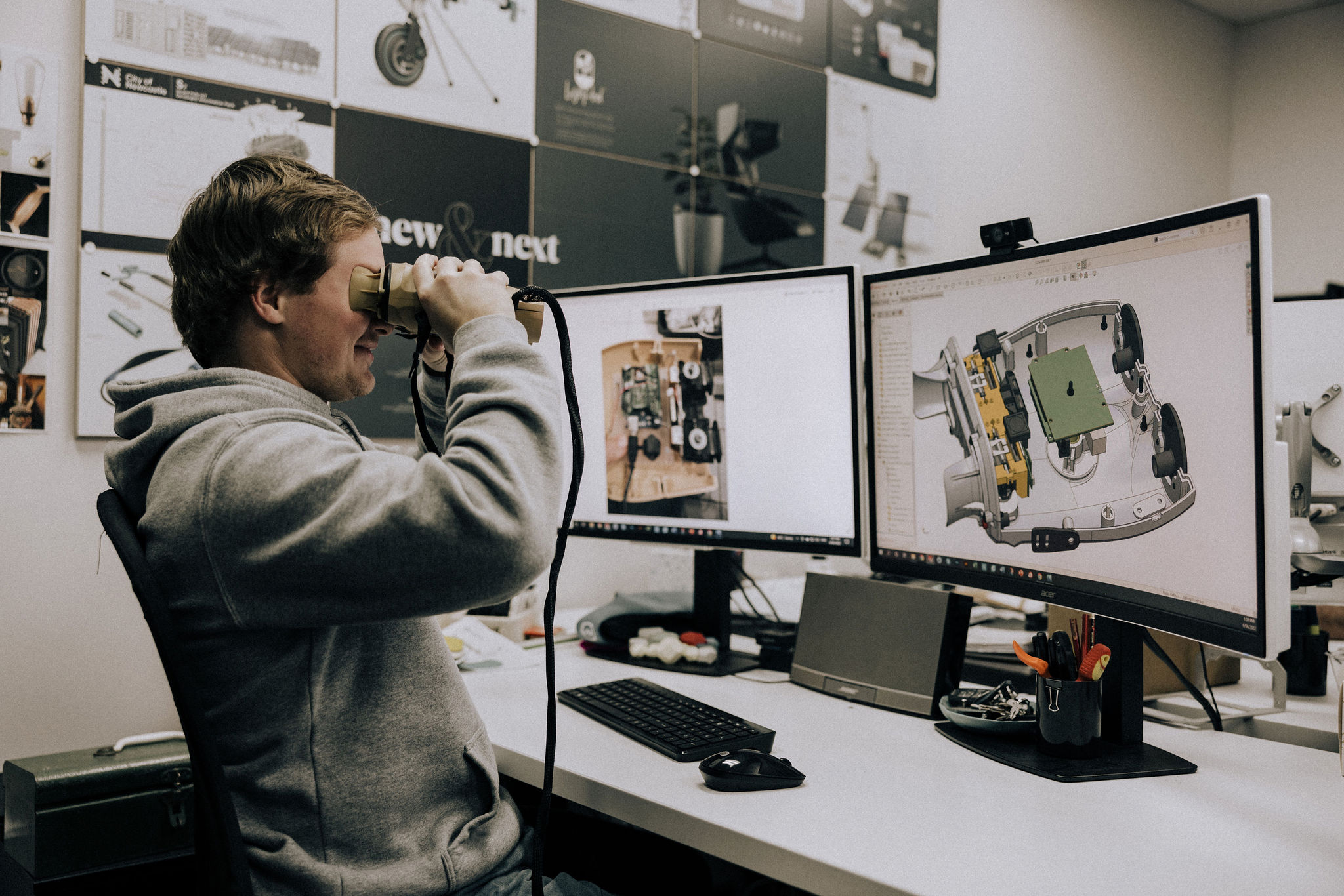Self-sufficient Modular Homes
EnergyCo
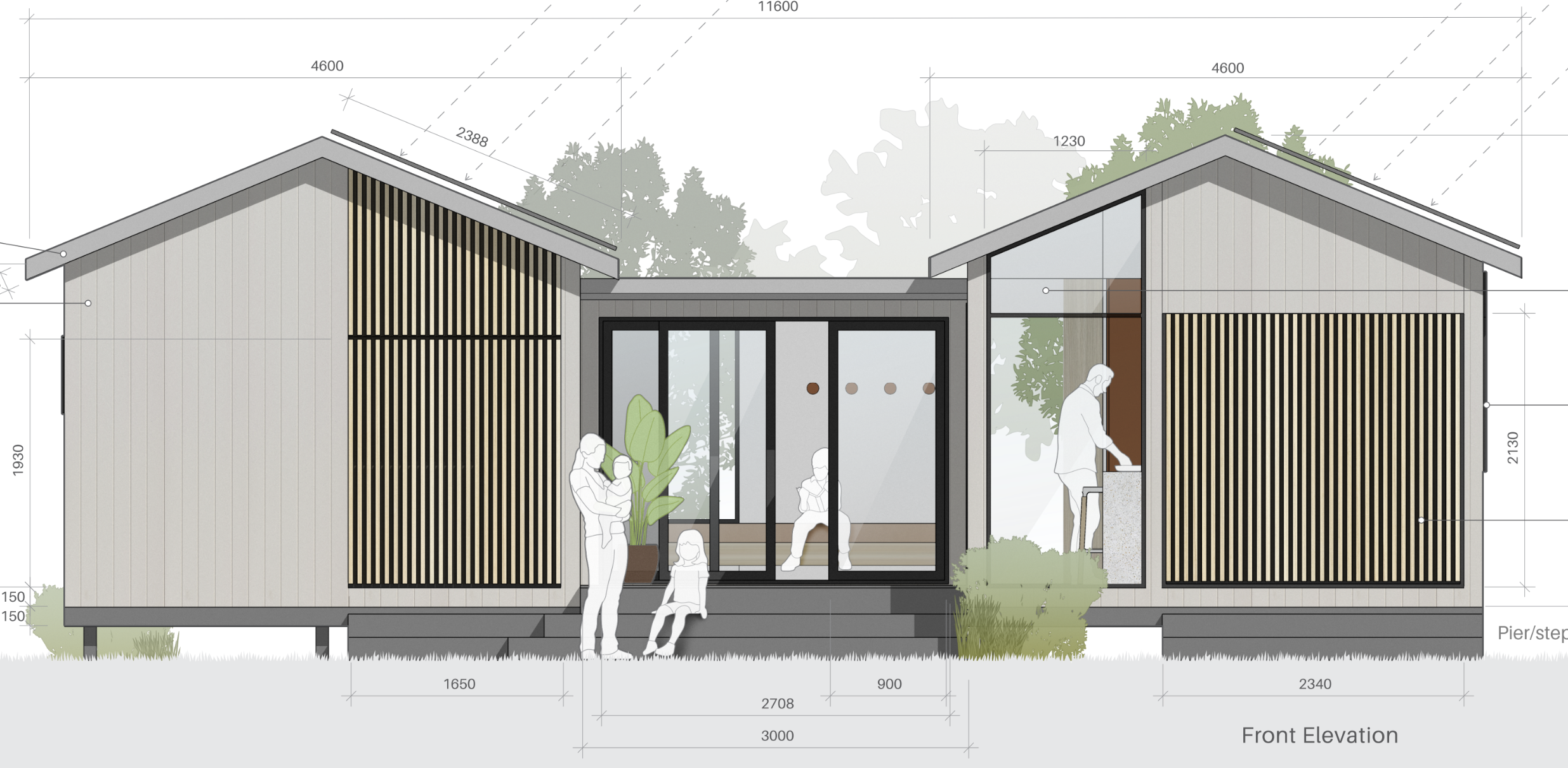
Adaptable for repurposing to alleviate housing shortages
Off-grid, efficient to manufacture, energy-efficient, comfortable, transportable, reusable, reconfigurable, recyclable, and sustainable
Comprehensive research, documentation, validation, and cost modeling

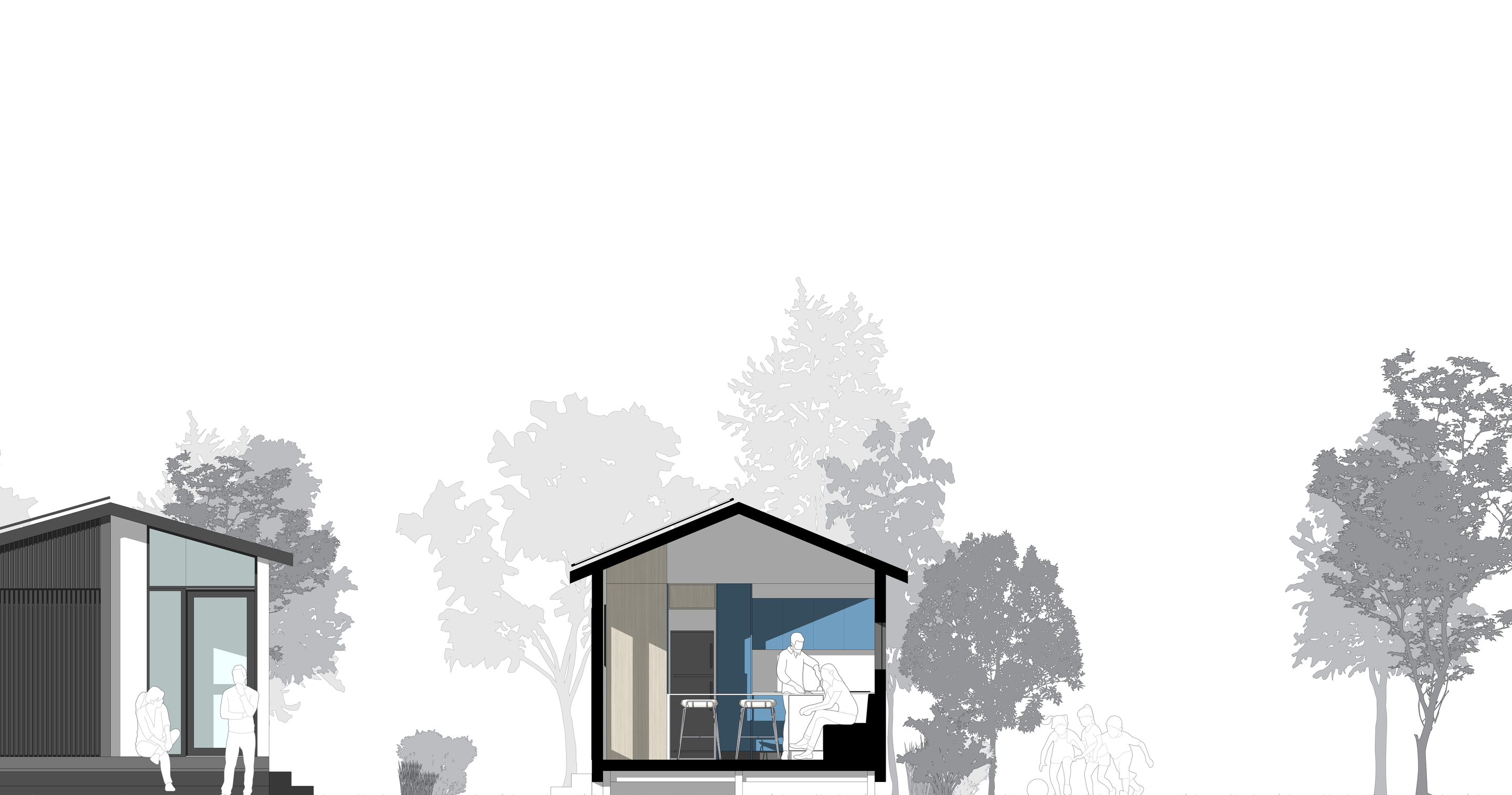
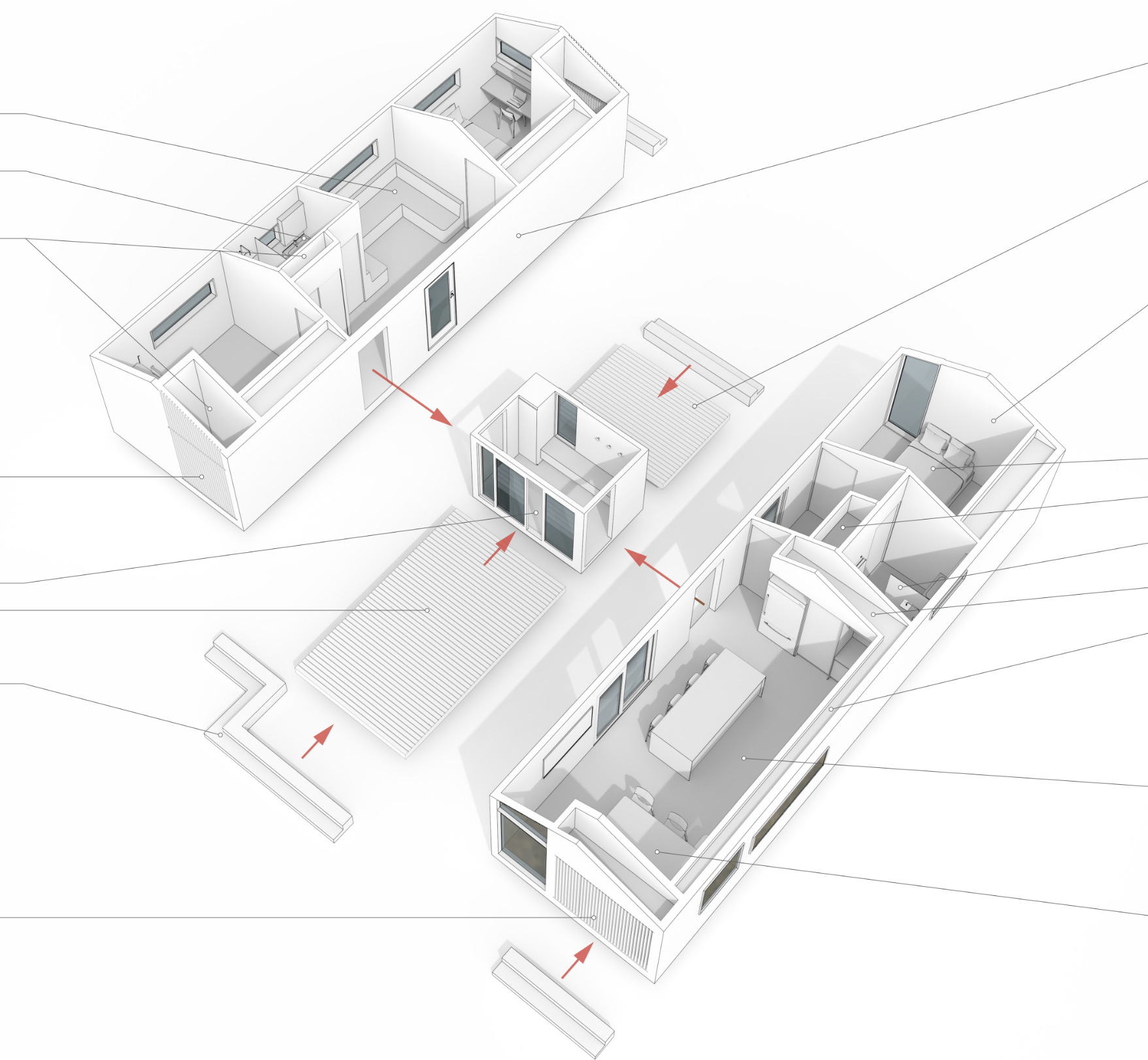
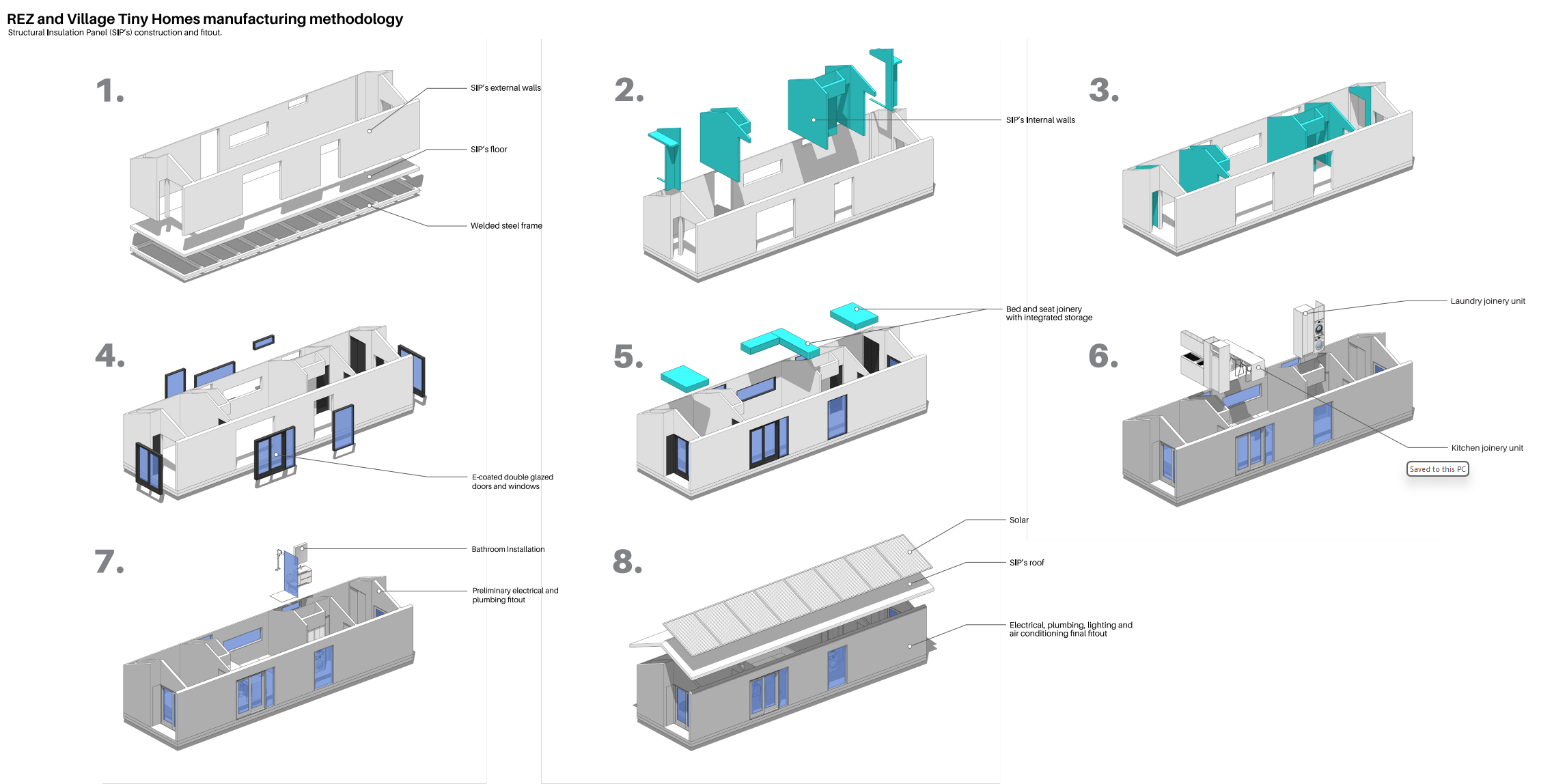

The Brief
EnergyCo sought Design Anthology’s expertise in researching, designing, visualising, cost modeling, and defining viable solutions for self-sufficient modular home accommodations. The project aimed to provide support to Renewable Energy Zone workers and their families by offering homes that are easily transportable between sites, capable of off-grid living, and adaptable for repurposing to alleviate housing shortages in communities.
Our collaboration with DPIE focused on conceptualising self-sufficient modular homes designed for ease of transportation between construction sites and independent off-grid operation. Key recommendations included the integration of innovative systems for portable water supply, greywater and septic treatment, and efficient solar and battery backup solutions. These features were aimed at significantly improving living conditions for workers and their families while also creating job opportunities and addressing housing shortages in communities. The modular design also allowed for potential conversions into other community assets such as medical clinics, enhancing their versatility and long-term impact.
Our primary goal in partnership with DPIE was to develop sustainable, comfortable modular homes that could be efficiently relocated across Renewable Energy Zones. Emphasising sustainability and liveability, our designs aimed to tackle the housing crisis while providing practical solutions for workers and their families. This project supports our commitment to creating meaningful community assets and addressing critical infrastructure needs in renewable energy development.
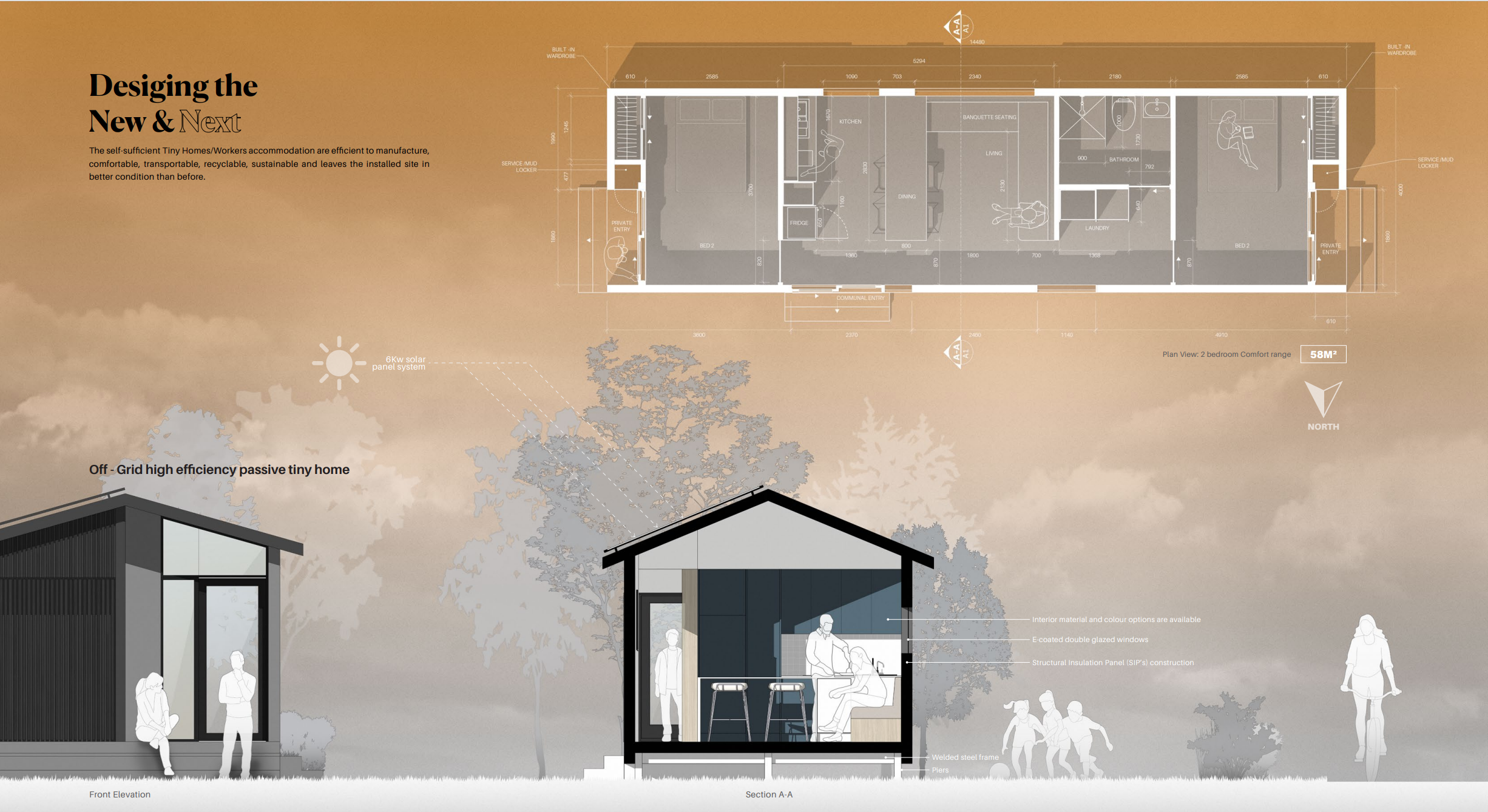
Challenges & Opportunities
The project presented a unique blend of challenges and opportunities in designing homes that are off-grid, efficient to manufacture, energy-efficient, liveable, comfortable, transportable, reusable, reconfigurable, recyclable, and sustainable. Our focus was on minimising the carbon footprint and ensuring the site’s improved condition post-installation. Additionally, recommending efficient camp support systems requires careful consideration of installation complexity, maintenance requirements, energy efficiency, lead time, warranty, output value, and long-term legacy.
Designing homes that meet rigorous criteria for sustainability and functionality was a challenge loved by our team. From conceptualisation to execution, our team was dedicated to creating solutions that not only met but exceeded expectations. The project culminated in a comprehensive 60-page report delivered in just 5 weeks, showcasing our research, design concepts, and recommendations.
Addressing the multifaceted requirements of off-grid living and sustainability demanded innovative thinking and meticulous planning. Each aspect, from material selection to energy systems integration, was scrutinised to ensure optimal performance and longevity. Our approach emphasised not only immediate functionality but also the adaptability and long-term viability of each home design.
This project exemplifies our commitment to pushing boundaries in sustainable architecture and modular design. By overcoming challenges and seizing opportunities, we have contributed to advancing the standards of off-grid living while leaving a positive impact on the environment.
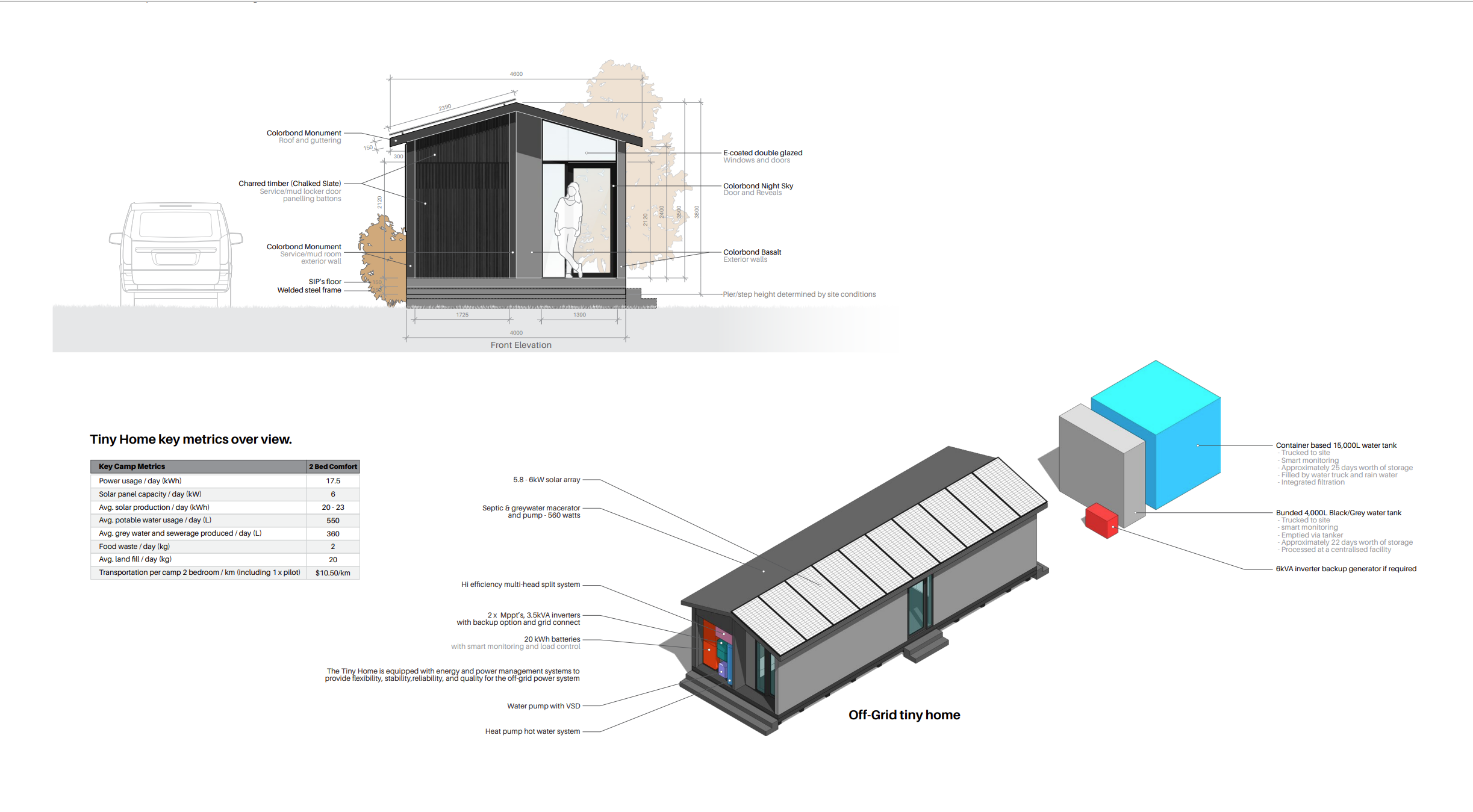
The Results
During this project, we undertook comprehensive research, documentation, validation, and cost modeling to develop feasible solutions across several critical areas:
- Researched and validated stand-alone power and waste systems, efficient building methods and materials, effective deployment and redeployment strategies, and integration of off-the-shelf hardware and systems
- Delivered visualised concepts and presentation materials that effectively communicated our conceptual direction and solutions to stakeholders, facilitating clear understanding and buy-in
- Established clear and actionable next steps for implementation based on validated design recommendations that exceeded client criteria and expectations
- Identified future uses and validated the potential for repurposing homes after the construction phase, ensuring sustainability and longevity
Our approach included integrating innovative systems for portable water provision, greywater treatment, and management of septic and food waste. We emphasised the implementation of energy-efficient, reliable systems utilising solar and battery backup. These efforts were aimed at significantly improving living conditions for Renewable Energy Zone (REZ) workers and their families, creating job opportunities, and addressing housing shortages in communities.
This project not only fulfilled DPIE’s immediate requirements but also established sustainable development practices in modular, manufacturable housing. By setting a precedent for future projects in the housing sector, we aimed to promote long-term environmental and social benefits.
Our deliverables, including visual concepts, presentation materials, research outcomes, and cost modeling, effectively communicated the project’s benefits, direction, and actionable steps to key stakeholders. This equipped DPIE with a compelling plan and inspiring vision, enabling informed decision-making and fruitful engagement with communities, manufacturers, builders, and government bodies.
The outcome left our customer delighted, equipped with the necessary tools to initiate discussions and collaborations that will drive positive change and sustainable development in the housing sector.
